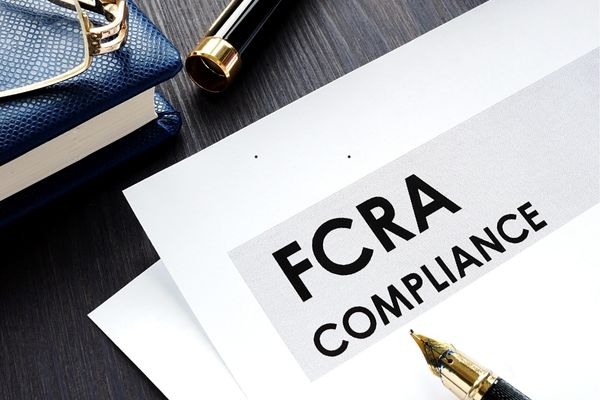If a customer disputes details on their credit report, a statement stating that the account “meets FCRA requirements” may be taken into account. The credit bureau, however, decides that the data is true. Additionally, all information is accurate and compliant with federal regulations.
A dispute that complies with the FCRA’s requirements implies that the end user filed a formal complaint and that the credit reporting agency (CRA) issued a fair Notice of Results of Full investigation, revealing that the alleged inaccuracy had been confirmed as accurate.
What Does The Fair Credit Reporting Act Mean?
In 1970 Federal legislation known as FCRA was adopted. It controls who has access to consumer credit reports and how consumer credit data is gathered. The objective was to address issues related to the privacy, fairness, and accuracy of the personal data kept in the files of credit reporting agencies.
The FCRA mandates that lenders and credit reporting agencies treat borrowers’ complaints very seriously. In contrast, the law places the responsibility of evidence on the customer and presumes that lenders will submit reliable information.
What Conditions Must Be Met For Account Information Disputes Brought On By Consumers To Comply With Fcra Requirements?
Consumer reporting organizations are required by the FCRA to provide buyers with the information in their documents upon request, and they are prohibited from disclosing information to outsiders unless there is an acceptable reason. The FCRA provides examples of a few permissible uses.
How Do I Challenge A Credit Report Item?
Consumers can dispute inaccuracies with 3 credit bureaus TransUnion, Experian, and Equifax,
These procedures are available on each agency’s website, and consumers can file complaints either online or by mail.
Disputes may be filed separately or all at once, depending on the instructions.
Consumers are responsible for obtaining and reviewing their credit reports, as well as noting any inaccuracies.
How Long Does Settling A Credit Report Dispute Take?
To address a dispute, the credit reporting agency has 30 to 45 days after it is filed. It is also critical for consumers to read a report from each of the 3 agencies since the information provided by each may differ. The reporting organization gets in touch with the lender and asks for proof of the information being filed.
Documentation is required either from the consumer or from the party who brought the dispute if it involves personal information like name or address. If the information provided by the lender is precise and in compliance with FCRA, it is determined by the credit reporting agency after it has examined the necessary documentation.
Inaccurate information is corrected or completely removed from the credit report if the decision is that the report is inaccurate. Other than that, the data in the report is left alone, and occasionally a note is added to the account that reads “meets FCRA requirements,” essentially reaffirming the accuracy of the data.
An error must be reported to TransUnion, Experian, and Equifax if it appears in all three because a credit bureau will only make corrections on their report. . If not, you could perhaps find that the negative content will only be removed from one credit bureau.
What Happens If The Consumer Is Unhappy With The Decision But The Account Information “Meets Fcra Requirements?
Most credit reports have mistakes on them. Most consumers are not likely to rectify them if they are aware of the errors because many of them are minor.
A default assessment of “accurate unless inaccurate” is frequently created by the volume of conflicts being reviewed, even when the information (such as late payments, charge-offs, etc.) is detrimental to a borrower’s credit rating.
The lenders are subject to stringent regulation, so it is presumed that correctness is in their best interests. When investigating a dispute, the credit reporting agency should ideally be impartial, but this isn’t always the case. Since lenders are required by Legal to disclose accurate information.
FAQs
Customers can contact their issuer to dispute fraudulent transactions on their bills. Additionally, you are permitted to contest a credit card charge for a buy you voluntarily made. This applies to situations where you weren’t happy with the product or service you got, like getting a broken TV.
Three government agencies—the state attorneys general, Federal Trade Commission (FTC), and the Consumer Financial Protection Bureau—have over the years been in charge of enforcing the FCRA.
It is acceptable for creditors to request personal information from you to evaluate your creditworthiness, such as your employment history and address.
Your grade is unaffected by a disagreement. However, if the data in your credit report changes as a result of the dispute resolution process, your credit score might also change. The rectification of such information won’t have an effect on your credit score.
It is possible that some states’ FCRA laws are more specific and provide their residents with greater protections. These two tiers of legal requirements may be too much or too unclear for a hiring manager to handle.
